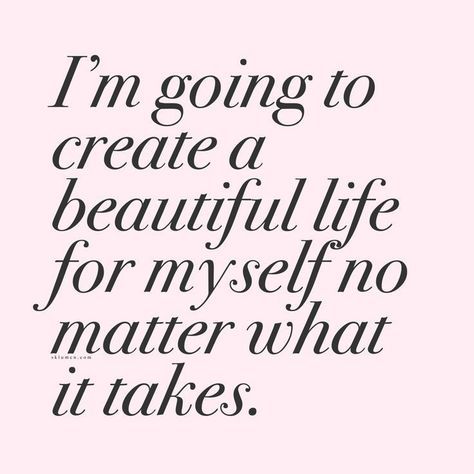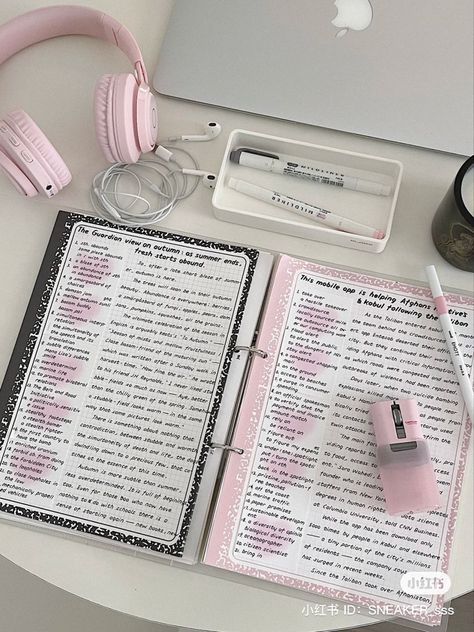I've Put Together Four Japanese Verbs.
I've put together four Japanese verbs.




More Posts from Resources-blr and Others


study methods


the second brain method
this method focuses on organizing the information you learn to maximize effectiveness. a common way of doing this is through the CODE method:
capture - be quick and efficient in how you receive the information
organize - organize the information in a way that works for you
distill - break the information down to its key elements
express - apply the information you’ve learned
* there is a ton of information out there about this method. if you struggle with burnout and knowing where to start, i recommend researching this method further to figure out what works for you.
the pomodoro method
the pomodoro method is a time management method. the most common expression of this method is to pick a task, work for 25 minutes on that task, then take a break for 5 minutes. then, repeat. if you’re planning to work all day, you may up the time spent studying. for example, after a while of this, you may work for 30 minutes at a time, then 40, then 45, and so forth. this method is particularly good for when you’re feeling unmotivated or having a hard time focusing. if you’re still not feeling it after a while, you may start to take longer breaks. for example, you may study for 30 minutes, break for 15, and keep going like that.
the 5 minute rule method
this method is good for when you have to do a shorter task, but you’re procrastinating doing it. this method requires you to dedicate only 5 minutes to do your task. after that, you may stop, but chances are, once you’ve started, finishing won’t be as difficult.
the blurting method
this method is particularly good for revision. the blurting method requires you to read over the content you are learning, then put it away and write down everything you know or can remember. then, check the content and revise everything you didn’t write down.
spaced repetition
spaced repetition requires you to spread out your study reviews over the period of a few days. this has been shown to improve memory. rather than studying one thing at a time, then studying something else the next day and so on, review the information right after you’ve learned it, then recall it after a few hours, then a few days, then a few weeks, and so on. if you’re studying something you will need to remember for an extended period of time, this method would be perfect for you!
active recall
this is my absolute favorite method! it’s been shown to improve your studying immensely and so many people have benefited from practicing active recall. active recall involves retrieving information from your brain, usually done through questions. a good way to do this is to explain the concept to yourself, to someone else, or act like you’re doing a presentation on the subject. after you’ve recalled all of the information you know about the subject, go over your material again and be sure you covered everything and explained everything the best way you could. if you didn’t, review everything you did not remember or got wrong, and go again. do this until you get everything. doing this can also be referred to as the feynman technique.
the SQ3r method
survey - skim your text and identify bolded text, headers, images, etc.
question - generate questions about the text based on what you surveyed. what are the key concepts in this text? what is each paragraph about? what information do i need to take away from this text?
read - read through the entire text and answer the questions you created
recite - summarize what you learned in your own words
review - recall the key concepts and answers to your questions
I've curated a selection of four Japanese terms, each one a combination of two kanji characters.




CREATING A STUDY SCHEDULE/ROUTINE



PLANNING/SCHEDULING
LIST YOUR ACADEMIC STRENGTHS AND WEAKNESSES. This is so you can allocate time accordingly and avoid wasting any time.
PRIORITISE ANY SUBJECTS. These may be subjects that will help you in your future career or just a subject you especially want a good grade in. Anything for these subjects then becomes the most important on your to-do list.
DIVIDE TIME EACH DAY. Not all days you are going to be able to sit down at your desk at the same time. Instead, according to your energy levels and planned activities, divide your time.
E.g I have cheerleading after school and I'm going to be so tired, so I’ll do my studying in the morning instead.
ESTABLISH BREAKS. Depending on how long you can study for, place a suitable break in between. This helps make studying more productive, but only if your breaks are.
CREATING
USE YOUR TIMETABLE. On days you don’t have a specific subject, dedicate more time to that one.
CONSIDER YOUR LEARNING STYLE. This helps to be a bit more specific when creating it, instead of winging it and just doing anything. Having a consistent way of studying helps us learn better.
E.g I’m a visual learner, so I’ll watch animations. I'm an auditory learner so I’ll watch a video of someone explaining it.
KNOW WHAT YOU WILL DO DURING STUDYING. Do not just wing studying, it’s unproductive and you’re more likely to waste time instead of using it.
Before you start studying, write a to-do list of everything you need to do during that session and how you will do it. Less time time-consuming and allows you to use time productively.
SAMPLE – this is Lanny’s daily study routine without any upcoming tests, as an early bird, kinesthetic learner and needs breaks to think with clarity.
Morning
Review my flashcards in preparation for any test.
Write/note any flashcards I'm struggling with.
Afterschool
Check seqta/school website to access my courses, in which I’ll write down which subjects I had.
Do a few quick blurts on paper of everything I learned in those subjects with prior reading. I only do this for HASS, math and science + any electives that require it. (blurting method)
Then I recheck my blurts, add in anything that I’ve missed and correct with a different coloured pen.
After, I push those papers aside but I do not discard them. I’ll then complete my online science homework + class workbook. If I happen not to understand anything I’ll watch a video on it and then complete some questions on that.
I’ll take a break around now because, on an estimate, it has been around 20-40 minutes since I started depending on how my science homework is. I usually eat something and then get back to it.
Math is next. I’ll complete any math homework, then I’ll practice doing math questions on my own. What I like to do is watch a math video, pause the question without the answer then watch to see if I got it. Effective because they explain it and I can see where I went wrong without analysing my working out which is rather time-consuming.
I take another break. Math stuff usually takes around 20-30 minutes.
I then do HASS, which is the easiest. I usually read an article or watch a video on hass then apply that knowledge by answering questions OR doing assigned chapter work.
I do not study English after school, but I usually read an assigned passage/book and then try to apply any techniques/knowledge by taking that paragraph apart and analysing it. Sometimes, I write my paragraphs using any taught techniques and then mark them.
Then, I redo my blurtings again but without prior reading then recheck and correct. Then I am finished for the afternoon!!
Evening
Review flashcards then watch a video/read an article on what I was struggling with in the morning but I do not do anything to consolidate this knowledge.
That is all, please feel free to ask me about any questions about studying as I don't really post much about it, I'll love to help out any fellow students!
“In that predicament, if I’m lucky, I’ll remember the observation, usually attributed to Joan Baez, that “action is the antidote to despair.” People tend to quote this in the context of political or environmental activism, but it applies to everything else, too: an overfilled inbox, a cluttered garage, an intimidating creative project or overdue tax return. If you can get yourself over the gap between knowing what you need to do and taking an action, things can only get better from there. Which means that at least the nature of the immediate challenge is clear: not to “become more productive” or “get motivated” or “make a plan for the month” or something like that, but just to do one thing to address whatever situation you’re in. […] If you can approach your daily life in this way for a while – as a sequence of momentary, self-contained, eminently doable actions, rather than as an arduous matter of chipping away at enormous challenges – you might notice something profound, which is that, in fact, this is all you ever need to do. You can make your way through life exclusively in this manner. (As E. L. Doctorow said of writing, it’s “like driving at night in the fog. You can only see as far as your headlights, but you can make the whole trip that way.”) And not just that: actually, it’s all you ever could do. There is no achievement, in the history of human civilisation, that has ever been accomplished by any means other than as a sequence of doable actions. In the end, it isn’t really a question of “breaking big projects down into small chunks.” It’s more a matter of seeing that “big projects” are nothing but psychological constructs, quasi-illusory entities summoned into existence by taking a particular view of what our lives really consist of – which is moments, and the actions that unfold in them. After all, in any given moment, we’re never actually “working on a big project” or “addressing a major challenge” or anything similar. We’re always just taking an action. And then another. And another.”
— Oliver Burkeman, How to get out of a rut
Essentials You Need to Become a Web Developer
HTML, CSS, and JavaScript Mastery
Text Editor/Integrated Development Environment (IDE): Popular choices include Visual Studio Code, Sublime Text.
Version Control/Git: Platforms like GitHub, GitLab, and Bitbucket allow you to track changes, collaborate with others, and contribute to open-source projects.
Responsive Web Design Skills: Learn CSS frameworks like Bootstrap or Flexbox and master media queries
Understanding of Web Browsers: Familiarize yourself with browser developer tools for debugging and testing your code.
Front-End Frameworks: for example : React, Angular, or Vue.js are powerful tools for building dynamic and interactive web applications.
Back-End Development Skills: Understanding server-side programming languages (e.g., Node.js, Python, Ruby , php) and databases (e.g., MySQL, MongoDB)
Web Hosting and Deployment Knowledge: Platforms like Heroku, Vercel , Netlify, or AWS can help simplify this process.
Basic DevOps and CI/CD Understanding
Soft Skills and Problem-Solving: Effective communication, teamwork, and problem-solving skills
Confidence in Yourself: Confidence is a powerful asset. Believe in your abilities, and don't be afraid to take on challenging projects. The more you trust yourself, the more you'll be able to tackle complex coding tasks and overcome obstacles with determination.
-
 resources-blr reblogged this · 3 months ago
resources-blr reblogged this · 3 months ago -
 resources-blr reblogged this · 3 months ago
resources-blr reblogged this · 3 months ago -
 soothingray liked this · 4 months ago
soothingray liked this · 4 months ago -
 pobeda147 liked this · 4 months ago
pobeda147 liked this · 4 months ago -
 sharpandpointies reblogged this · 4 months ago
sharpandpointies reblogged this · 4 months ago -
 sharpandpointies liked this · 4 months ago
sharpandpointies liked this · 4 months ago -
 shions-gs liked this · 5 months ago
shions-gs liked this · 5 months ago -
 sugarkat liked this · 5 months ago
sugarkat liked this · 5 months ago -
 goudsbloemtekeningen liked this · 5 months ago
goudsbloemtekeningen liked this · 5 months ago -
 shizukanafinch reblogged this · 5 months ago
shizukanafinch reblogged this · 5 months ago -
 wirsindcolorful liked this · 5 months ago
wirsindcolorful liked this · 5 months ago -
 shirowm liked this · 5 months ago
shirowm liked this · 5 months ago -
 the-skeletoninyour-closet liked this · 5 months ago
the-skeletoninyour-closet liked this · 5 months ago -
 melsm liked this · 5 months ago
melsm liked this · 5 months ago -
 warau-okami reblogged this · 5 months ago
warau-okami reblogged this · 5 months ago -
 positivemotivation liked this · 5 months ago
positivemotivation liked this · 5 months ago -
 terebistation liked this · 5 months ago
terebistation liked this · 5 months ago -
 gogo-johnny liked this · 5 months ago
gogo-johnny liked this · 5 months ago -
 indigonightmare liked this · 5 months ago
indigonightmare liked this · 5 months ago -
 tukangebut liked this · 5 months ago
tukangebut liked this · 5 months ago -
 hamusuke-japanese-learning reblogged this · 5 months ago
hamusuke-japanese-learning reblogged this · 5 months ago




















